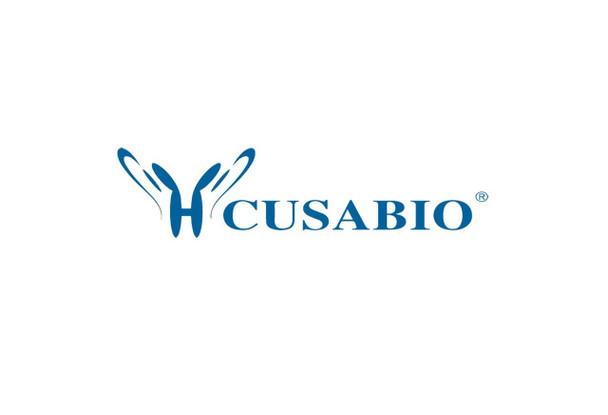Cusabio Mouse Recombinants
Recombinant Mouse Growth/differentiation factor 5 (Gdf5) | CSB-EP009349MO
- SKU:
- CSB-EP009349MO
- Availability:
- 13 - 23 Working Days
Description
Recombinant Mouse Growth/differentiation factor 5 (Gdf5) | CSB-EP009349MO | Cusabio
Alternative Name(s): Bone morphogenetic protein 14 ;BMP-14
Gene Names: Gdf5
Research Areas: Others
Organism: Mus musculus (Mouse)
AA Sequence: APLANRQGKRPSKNLKARCSRKALHVNFKDMGWDDWIIAPLEYEAFHCEGLCEFPLRSHLEPTNHAVIQTLMNSMDPESTPPTCCVPTRLSPISILFIDSANNVVYKQYEDMVVESCGCR
Source: E.coli
Tag Info: N-terminal 6xHis-tagged
Expression Region: 376-495aa
Sequence Info: Full Length of Mature Protein
MW: 17.6 kDa
Purity: Greater than 90% as determined by SDS-PAGE.
Relevance: Growth factor involved in bone and cartilage formation. During cartilage development regulates differentiation of chondrogenic tissue through two pathways. Firstly, positively regulates differentiation of chondrogenic tissue through its binding of high affinity with BMPR1B and of less affinity with BMPR1A, leading to induction of SMAD1-SMAD5-SMAD8 complex phosphorylation and then SMAD protein signaling transduction . Secondly, negatively regulates chondrogenic differentiation through its interaction with NOG . Required to prevent excessive muscle loss upon denervation. This function requires SMAD4 and is mediated by phosphorylated SMAD1/5/8 . Binds bacterial lipopolysaccharide (LPS) and mediates LPS-induced inflammatory response, including TNF secretion by monocytes .
Reference: BMP signaling controls muscle mass.Sartori R., Schirwis E., Blaauw B., Bortolanza S., Zhao J., Enzo E., Stantzou A., Mouisel E., Toniolo L., Ferry A., Stricker S., Goldberg A.L., Dupont S., Piccolo S., Amthor H., Sandri M.Nat. Genet. 45:1309-1318(2013)
Storage: The shelf life is related to many factors, storage state, buffer ingredients, storage temperature and the stability of the protein itself. Generally, the shelf life of liquid form is 6 months at -20?/-80?. The shelf life of lyophilized form is 12 months at -20?/-80?.
Notes: Repeated freezing and thawing is not recommended. Store working aliquots at 4? for up to one week.
Function: Growth factor involved in bone and cartilage formation. During cartilage development regulates differentiation of chondrogenic tissue through two pathways. Firstly, positively regulates differentiation of chondrogenic tissue through its binding of high affinity with BMPR1B and of less affinity with BMPR1A, leading to induction of SMAD1-SMAD5-SMAD8 complex phosphorylation and then SMAD protein signaling transduction (By similarity). Secondly, negatively regulates chondrogenic differentiation through its interaction with NOG (By similarity). Required to prevent excessive muscle loss upon denervation. This function requires SMAD4 and is mediated by phosphorylated SMAD1/5/8
Involvement in disease: Defects in Gdf5 are the cause of brachypodism (bp) which alters the length and numbers of bones in the limbs but spares the axial skeleton.
Subcellular Location: Secreted, Cell membrane
Protein Families: TGF-beta family
Tissue Specificity:
Paythway:
Form: Liquid or Lyophilized powder
Buffer: If the delivery form is liquid, the default storage buffer is Tris/PBS-based buffer, 5%-50% glycerol. If the delivery form is lyophilized powder, the buffer before lyophilization is Tris/PBS-based buffer, 6% Trehalose, pH 8.0.
Reconstitution: We recommend that this vial be briefly centrifuged prior to opening to bring the contents to the bottom. Please reconstitute protein in deionized sterile water to a concentration of 0.1-1.0 mg/mL.We recommend to add 5-50% of glycerol (final concentration) and aliquot for long-term storage at -20?/-80?. Our default final concentration of glycerol is 50%. Customers could use it as reference.
Uniprot ID: P43027
HGNC Database Link: N/A
UniGene Database Link: UniGene
KEGG Database Link: KEGG
STRING Database Link: STRING
OMIM Database Link: N/A









